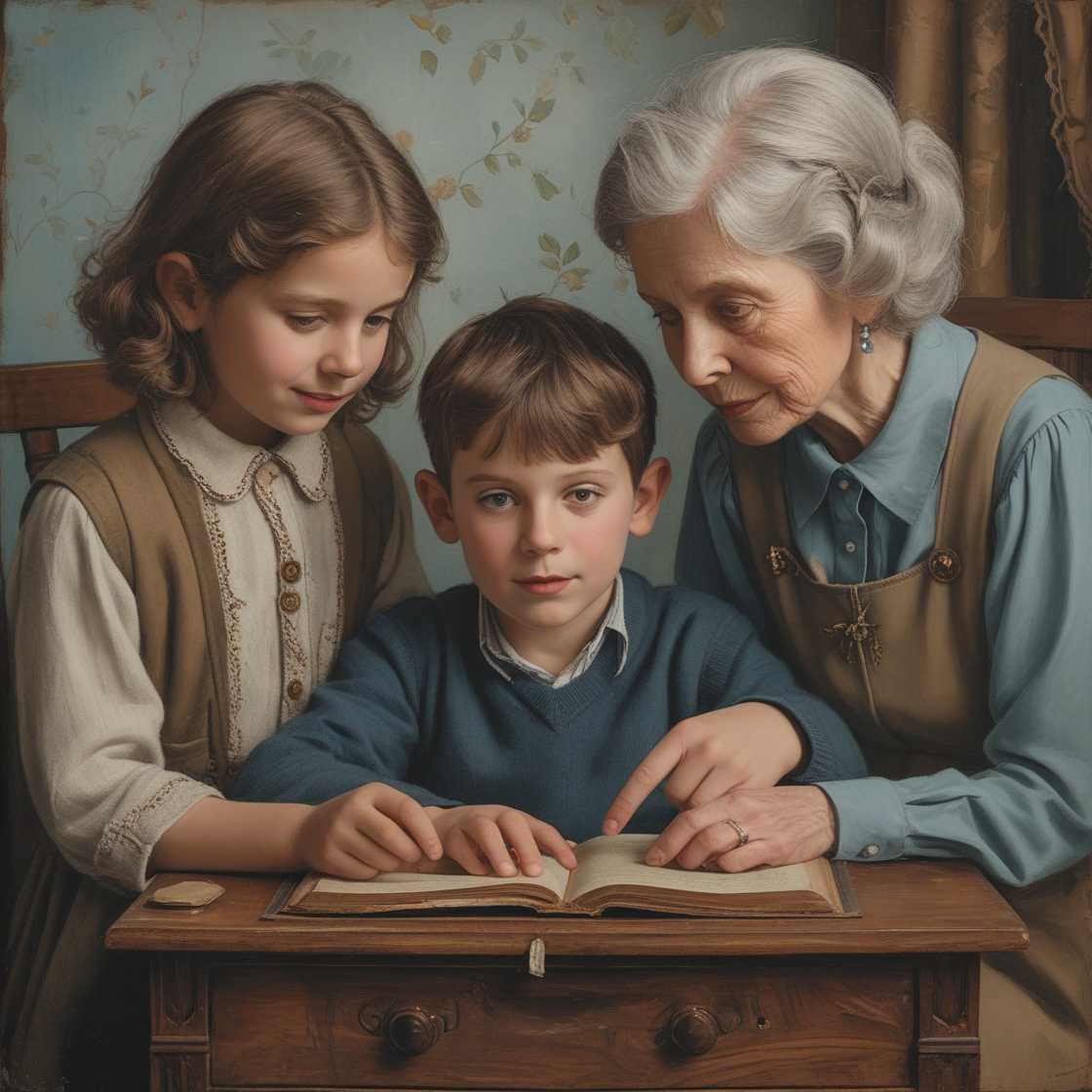I never imagined that such a simple word—grandmother—could cause such a storm within a family. It all started when my son told me about his friend, a boy named Alfie, from a village near York. Apparently, Alfie called his grandmother by her first name: Margaret. At first, I assumed it was just a child’s mispronunciation. Kids often mangle words when they’re young, after all. But then I learned Alfie’s older brother, Oliver—who was thirteen—also called her Margaret. That’s when it struck me as strange. Eerie, even. Like there was something unspoken, something hidden just beneath the surface.
Curious, I brought it up to their mother, Harriet, who lived close by. She welcomed me in for tea, her manner warm but her eyes tired. And then, as the kettle hissed, she told me a story that gave me chills.
Margaret Anne—her mother-in-law—had made one thing absolutely clear: under no circumstance were the children to call her “grandma.” “I’m not some old biddy!” she’d snapped one day, and that was that. Everyone had to address her by her name. Harriet confessed it felt like a slap in the face. Why would someone reject such a tender, loving title?
Harriet was on her second marriage. Her first had been brief and childless, a chapter quickly closed. But with Edward, her current husband, she’d started anew. Their eldest, Oliver, was in Year 5; little Alfie had just begun Reception. Margaret Anne was only fifty-six, but she clung to the idea that she was still young. To her, grandma wasn’t an honor—it was a life sentence. A word that meant fading into the background, growing invisible. If someone slipped and used it, she’d cut them off without a second thought. “I’ve got my whole life ahead of me!” she’d snap, glaring into the mirror as if defying time itself.
To me, “grandma” has always been a word of warmth—of home-baked biscuits and soft blankets and whispered bedtime stories. But to Margaret Anne, it was a symbol of something she refused to become. I tried to imagine my own mother’s face if my son ever called her by her first name—she’d be devastated. But I kept that thought to myself. Every family has its rules, its quiet wounds, its own way of surviving.
Harriet admitted the issue had once exploded into a full-blown argument. When Oliver was born, Margaret Anne had casually joked that she didn’t want to be called “grandma.” Harriet had laughed, thinking it was nothing serious, and let Oliver say “gran”—it was easier for a toddler. But that single syllable ignited a fire. One day, when Oliver cheerfully babbled “gran,” Margaret Anne stormed in, face pale with fury. “If he calls me that again, I’ll never speak to any of you!” she shouted, slamming the door behind her. Harriet was stunned. He was just a child—what harm could there be in an innocent word?
But Margaret Anne held her ground. And by the time Alfie was born, she’d only become more rigid. From infancy, she coached him to say “Margaret.” If anyone slipped up, she was quick to correct them. Harriet tried to argue, but it was like speaking to stone. “I won’t be treated like an old woman,” Margaret Anne would say, ending the conversation.
It weighed heavily on Harriet—watching the boys grow up without the softness of a grandmother’s love, while Margaret Anne stood at arm’s length, guarding her pride. But what could she do? Resistance only built higher walls.
As I sat listening, I struggled to understand. What kind of person distances themselves from their own grandchildren to preserve an image? I almost joked that maybe she insisted her own son, Edward, call her “Margaret” instead of “Mum.” It wouldn’t have shocked me.
Harriet poured us both more tea and gave a weary smile. “I’ve made my peace with it,” she said. “If Margaret is who she wants to be, fine. As long as the boys don’t feel unloved.”
But I saw the sorrow behind her eyes. By refusing the title, Margaret Anne had done more than reject a name—she had rejected the role, the closeness, the very spirit of being a grandmother. Oliver and Alfie might say “Margaret” with perfect diction, but there was no warmth in their tone. No eager arms reaching for hugs. Just a name—and a space where something richer should have been.
